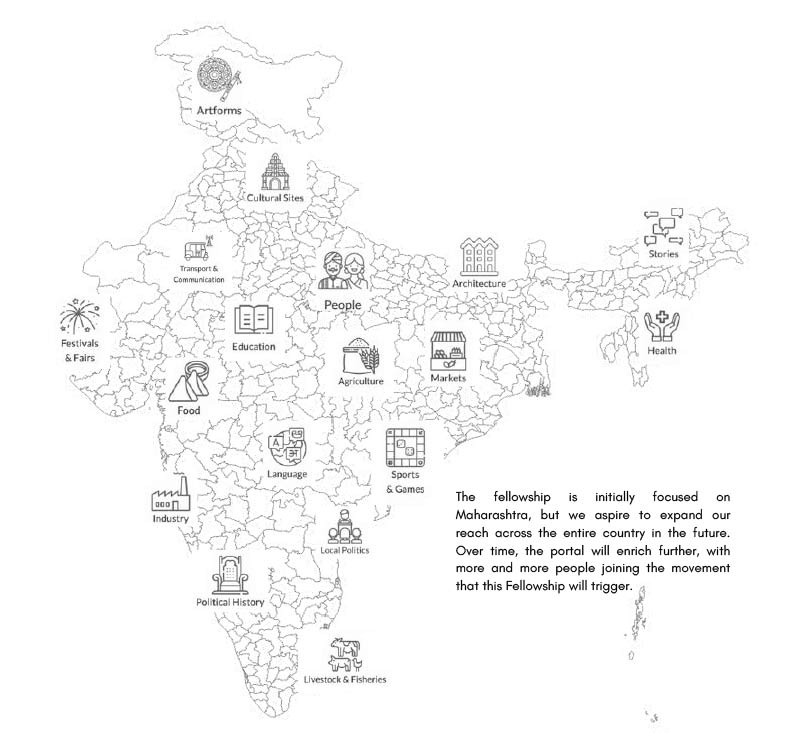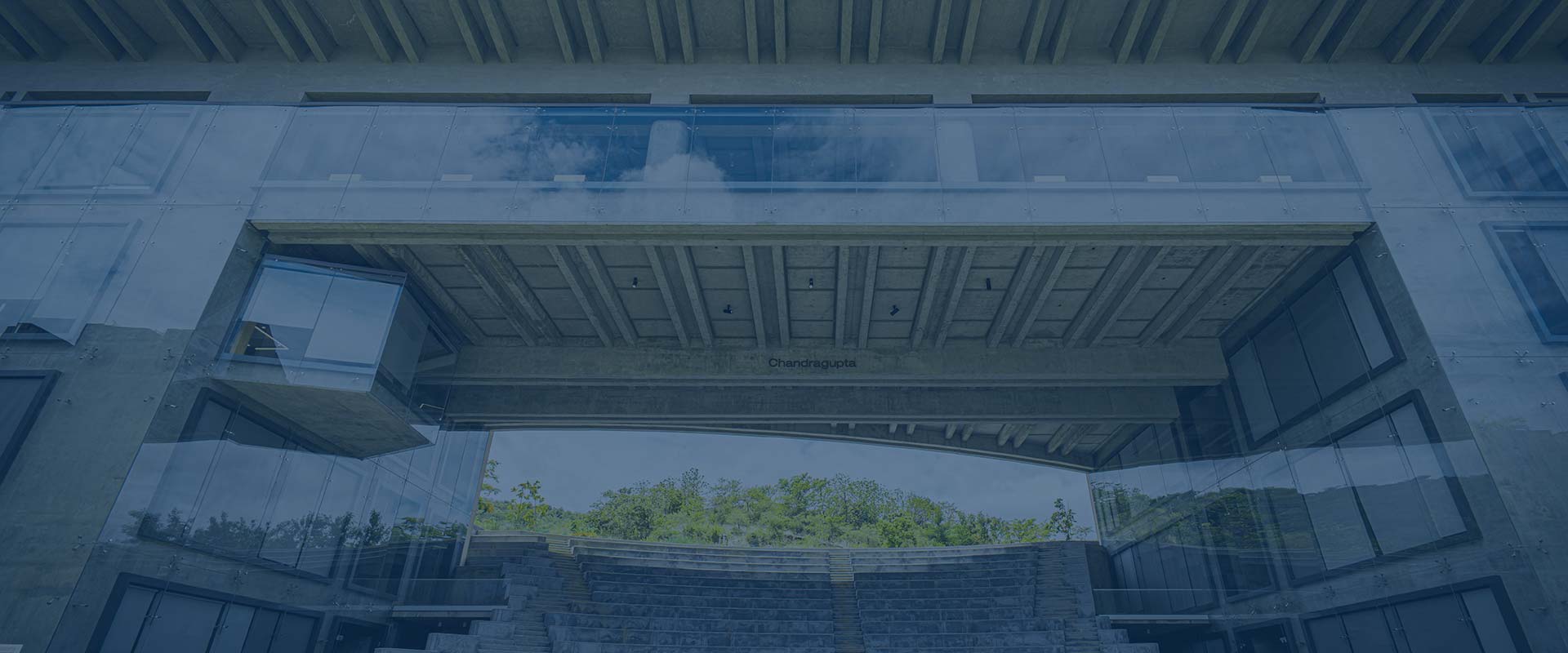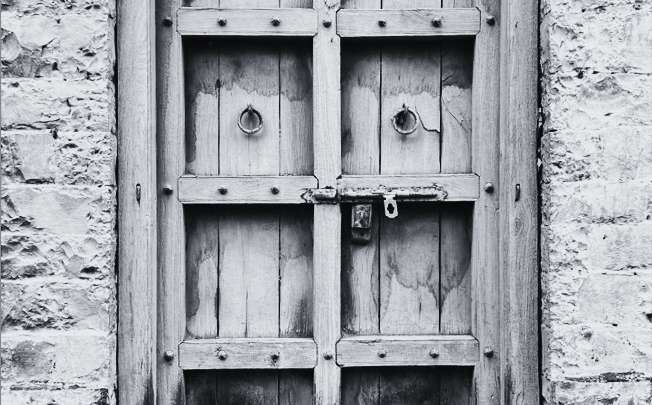THE CHRONICLE PROJECT
The Centre for Knowledge Alternatives at FLAME University is pleased to announce its first District Fellowship Program, in the state of Maharashtra. This initiative is a key part of the Chronicle Project, the flagship endeavor of the Centre. The Project is pioneering large-scale documentation of district-level statistics and cultures across India. The Fellowship Program aims to capture the ‘culture' aspect of the Project. The first state to launch the project is Maharashtra.
The Fellowship is designed to curate a comprehensive documentation of cultural inventory of the districts of Maharashtra. District Fellows will be responsible for their district documentation, through an unparalleled opportunity to explore and discover the prominent as well as hidden cultural aspects of their districts. They will engage with local residents, visit various sites of interest, collect stories, images and emotions of the place, to build an encyclopedic insight into the soul of the district. The Fellows will receive a training in surveying, development of survey tools, writing and effective communication, some aspects of data for social science, and skills in emerging technological tools for such tasks.
The Fellowship offers a unique design of training, skills and exposure in an interdisciplinary field of inquiry. As collectors, authors and custodians of cultural attributes of the knowledge regarding their districts, the District Fellows will enjoy a unique reputation in the ambitious Chronicle Project as it matures. Through the Fellowship, they will make several meaningful contributions to their communities. Their work will go a long way in preserving the rich cultural heritage of their region and making it accessible to a wider audience.

OBJECTIVE
In the digital world, while we are more connected and engaged with faraway places, we are losing our connect with our immediate surroundings. Our relationship with our neighborhoods, cities and towns is dying. As young people flock out of their native places for jobs and other reasons, there is a loss of culture that we are witnessing in today’s world. This is an epistemic loss. A loss of time, memory and playfulness.
The Fellowship Program is an effort to (re)discover our small towns. We want to cultivate a network of guardians of local cultural knowledge who serve as collectors and archivers of knowledge of their towns. As much of the plurality and diversity of our heritage is at risk of being eclipsed in the wave of internet technologies, the District Fellowship Program aims to infuse new life into stories, arts, histories, festivals and markets of our districts. We want to sow the seeds of cultural knowledge, through the hands of young generation, which is most at the risk of losing all the vernacular wisdom of their communities.
These guardians of local cultural knowledge will work towards capturing the essence of their towns and villages, for posterity to use.
FELLOWSHIP DESIGN & OUTCOMES
The primary responsibility of the District Fellow will be to collect and curate stories and insights about the cultural aspects of her/his district, in form of prose and pictures. These stories and ideas will be categorized under the following broad heads: food, people (communities), language (including dialects), artforms, stories and folktales, cultural sites, architecture, sports and games, festivals and fairs, local history, markets and bazaars, local politics, agriculture, education, health, environment, law and the like. The final output will be comprehensive reports on the information collected along with pictures to enrich the stories.
Fellows will undertake fieldwork, collect stories and narratives. They will explore vernacular texts and study old gazetteers extensively. They spend a lot of time talking to people on the streets, snowballing into new networks and new information. They will not go with any preconceived questions in mind. They will allow the place to open itself to them on its own as we collect diverse experiences of people. This humbling process is not just a discovery of the place, but of oneself too.
The design will be as follows:
- Phase 1: Selection through a competitive process
- Phase 2: Training at FLAME University campus
- Phase 3: Pilot on the field for ~1 week
- Phase 4: Once the pilot is approved, extensive fieldwork for 2 months
- Phase 5: Writing and submissions
Fellows who show exemplary drive and commitment towards this work may be considered for a fulltime position in the Centre for Knowledge Alternatives.
This is a paid fellowship. Each selected Fellow will receive a monthly stipend, and a Certificate. The Fellows will become part of a nationwide network that we are building.
FELLOWSHIP ASPECTS
We will be selecting anywhere between 50-100 Fellows for Maharashtra. Depending upon the quality of applications, some districts can have multiple Fellows too.
Fellows will visit the FLAME University campus in Pune for comprehensive training in qualitative research methodologies and techniques.
- The training is designed to equip fellows with the skills and knowledge needed to conduct high-quality research in their respective fields.
- Fellows will work with experienced researchers and faculty members who are experts in qualitative research methodologies.
- Access to state-of-the-art research facilities and resources, including libraries, archives, and databases, will be provided during the training.
- The training will also offer survey tools, software support, standard operating procedure and introductory understanding of conducting the fieldwork.
This phase involves the practical application of the training received, where fellows will engage in fieldwork to gather data and conduct research in real-world settings.
Fellows will be required to document their findings and research outcomes, including pictures, which may include writing reports, creating presentations, or producing other forms of work to communicate their findings. While the fieldwork can take place in any language, the outputs have to be in accessible, simple English.
ELIGIBILITY
You can be a high school or college student, or even a graduate, it doesn’t matter. What matters is your passion and curiosity to know your own land.
You should preferably be native to Maharashtra, rooted in the local culture, maybe one who has grown up in the local ecosystem.
Proficiency in reading and speaking Marathi and in written English will be necessary.
DURATION
The duration of the fellowship will be three months, which includes training, research, documentation and submission.
STIPEND
Depending on the need, some Fellows may be entitled to receive a monthly stipend of upto ₹5k-10k to support their expenses during the Program. Additionally, their travel expenses to and from FLAME University for training, as well as their stay on campus will be covered.
CERTIFICATE
District Fellows will be entitled to receive a Certificate of Fellowship, reflecting the work accomplished during the Fellowship period and skills learnt, and used during the Program.
AUTHORSHIP
Fellows will also receive authorship and attribution to the content they create in the outcome of the project.
APPLICATION PROCEDURE
We seek individuals with a passion for discovery, an insatiable curiosity about our own lands, and the curiosity to excavate new information. If we find an excited bunch of Fellows, magic will happen!
The application process for the District Fellowship Program consists of two stages:
First Round (Application): Applicants will be required to fill out a Google Form providing details about their educational background, interests and attaching their one-page CV. More importantly, the Form will have a variety of objective and subjective (short answer) questions that capture the sensitivity of the applicant towards the Project goals. The answers to these questions will be used to determine the suitability of the candidate to qualify in the first round. The Form should take 1 hour at the most to fill.
Second Round (Sample Fieldwork): Those shortlisted in the first stage will be given a short fieldwork assignment. The assignment may typically take 3-5 days to complete. After the submission, if there are more than required number of Fellows shortlisted, we may conduct an interview.
Interested candidates may apply through this Application Form. https://forms.gle/bNZNYUYtcYTX2vJ96
Important Dates:
- Deadline to submit the Google Form:
20 March, 24 March, 2024 - Announcement of Round 1 Results: 26 March, 2024
- Submission of Round 2 Assignment: 1 April, 2024
- Announcement of Round 2 Results: 4 April, 2024
- Training on FLAME Campus: 8-10 May, 2024
- Substantive Fieldwork Commences on 20 April, 2024
For any information or query related to the Fellowship, please feel free to contact
us.
Email Id: cka@flame.edu.in
Phone Number: +91 97662 26670 OR +91 9052481161
(Please apply early, rather than waiting until the deadline. It will give us more time to assess your responses.)
WHY BE A DISTRICT FELLOW?
Fellows will have the opportunity to get training at the picturesque campus of FLAME University and learn closely from experienced professionals who will provide hands-on training and guidance in survey tools, data collection and interview techniques. They will have access to relevant technologies, training, and tools for conducting fieldwork. Additionally, they will receive handholding support through Zoom calls throughout the program.
At FLAME University, fellows will be part of a community of district fellows, which will provide them with a supportive network of peers who share their interests and goals. This will be an army of young intellectuals across the country, which will act as custodians of knowledge about their districts. The members of this flourishing community will access various events, programs and other opportunities that the Centre for Knowledge Alternatives will organize to foster advancement in local knowledge curation. Over time, the membership will grow into an intellectual movement, significantly influencing policies at local level.
As a Fellow, they will have the opportunity to showcase their work through various channels, including websites, books, and papers. They will be encouraged to take ownership of their projects and to share their insights and findings with others.
Upon successful completion of the Fellowship, the fellows will receive a Certificate of Completion from Centre for Knowledge Alternatives, FLAME University, reflecting their contribution to the Project. Over time, this will be help them stand out in their careers and demonstrate their commitment to their chosen field.
Fellows who demonstrate remarkable dedication and skills may be considered for full-time employment with the Centre for Knowledge Alternatives.
ABOUT THE CENTRE
Werner Heisenberg, the famous quantum physicist, used to say that we see only that part of reality which is exposed to our questions.
What if we went out in search for India, without any specific questions in mind?
The Centre for Knowledge Alternatives, established in 2021 at FLAME University in Pune, is dedicated to creating comprehensive knowledge archives on district-level statistics and cultures throughout India, documented as it is. While the Centre engages with both statistics and cultures, the Fellowship Program is designed mostly for the purposes of documenting cultures.
We view knowledge as a forest rather than a manicured garden. By embracing the complexity and diversity of information, we strive to create a more nuanced and comprehensive understanding of our lands.
Visitors and tourists to India often call it a bundle of contradictions, an ‘enigma.’ More nonfictions are written about understanding India than perhaps any other country in the world. Yet, what makes it all so interesting is that while foreigners view us enigmatic, we get by our daily lives in really simple manner, without any confusions about ourselves. How can we then document ourselves? What will we get if we don’t allow any framework or theory to explain or define us. At the Centre, we map local cultures, stories and data to create decentralized chronicles of India.
How can we know about our local regions, our districts, each having their own stories to celebrate, as well as their own developmental challenges? In the presence of centralized, homogenizing impulses, how do we preserve their diverse stories and evolve unique responses to those challenges?
We will create an open-source platform, allowing for user-generated content, so that people can enrich the platform with their own stories as we go along. This will become a living encyclopedia. This is an exercise of understanding a place from the perspective of the local people, of seeing it unfold like peeling layers of onion. Like listening to a town, and retelling the music.
ABOUT FLAME UNIVERSITY
FLAME University has been established as a state private university vide the FLAME University Act 2014 (Maharashtra Act No. II of 2015) of the Government of Maharashtra. FLAME has been set up with an idealistic vision and a social commitment to contribute to society in a noble manner.
FLAME has been created as an academic institution anchored in Liberal Education. It is the pioneer of Liberal Education in India. The objective of Liberal Education at FLAME is to go beyond the known and familiar structured and narrowly encapsulated forms of knowledge. The aim is to provide students a learning experience that would excite and enthuse them. The education at FLAME University rests in multiplicity and simultaneity, as well as in making active choices from all that is made available. The focus is on experiencing, learning, selfreflection and self-discovery by freeing themselves from the traditional ways of looking at things and instead to constantly question and challenge themselves, society and the world at large. FLAME University’s vision is to advance society through learning. It aspires to offer an aspirational destination for students and faculty to innovate the design and nature of studies, to inspire research to push the frontiers of inquiries in liberal education, leadership, and beyond.
Spread over 60 acres of green expanse, FLAME prepares students who have a strong desire to learn and grow continually, welcome new ideas, value diversity with desire to succeed and give their best towards excellence in all spheres of life.
Our intense and intellectual curriculum caters to worldly interests that expand across five schools: FLAME School of Liberal Education, FLAME School of Computing and Data Sciences, FLAME School of Business, FLAME School of Communication and FLAME School of Design, Art & Performance. Each school centres on perspective building, studying problems to give creative solutions, teamwork and ethics. We also place strong emphasis on international collaborations, commitment to public service, and high-quality impactful research that forms our rigorous and experiential pedagogy.
DOWNLOAD FELLOWSHIP BROCHURE


